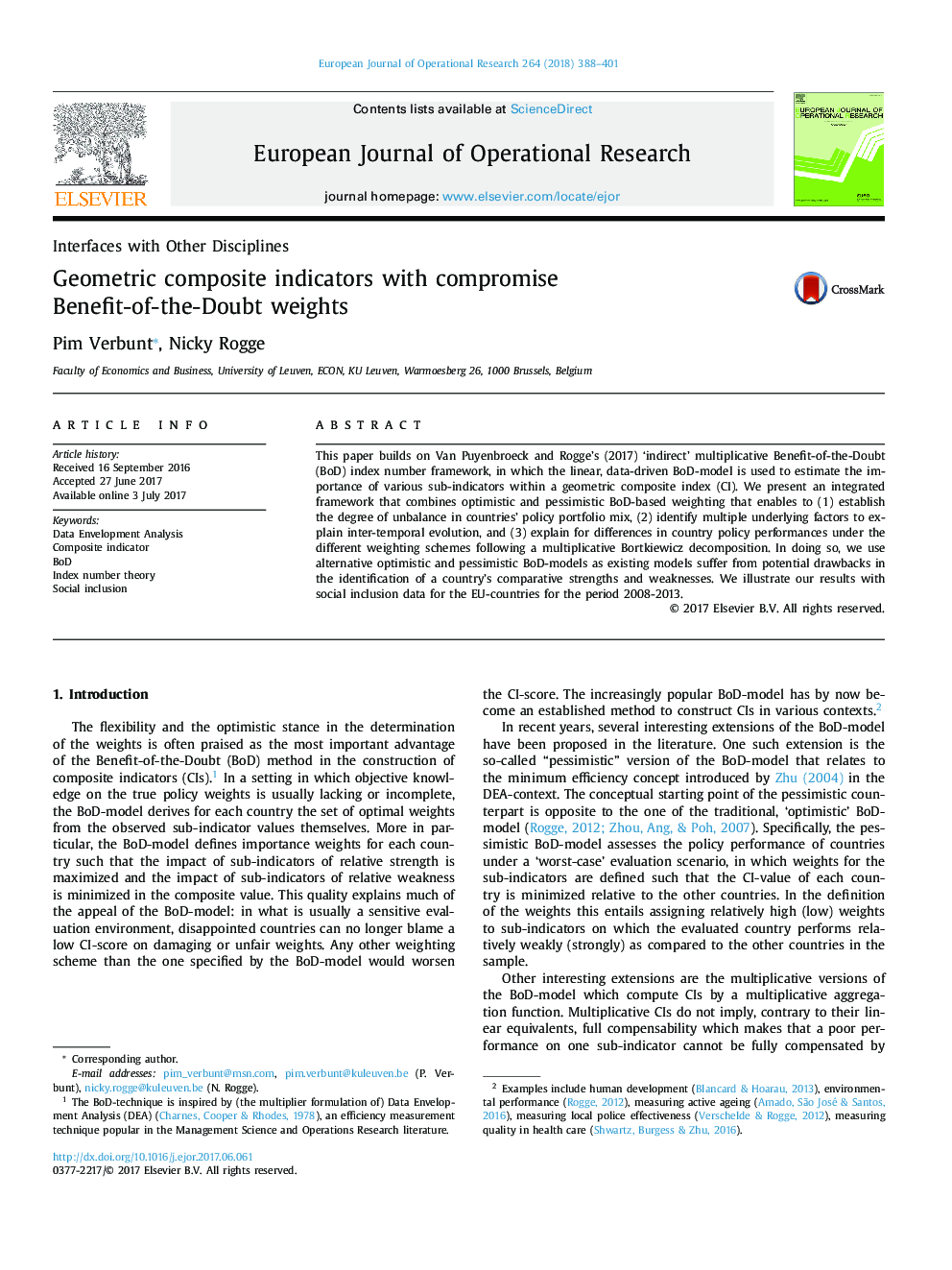| Article ID | Journal | Published Year | Pages | File Type |
|---|---|---|---|---|
| 4959465 | European Journal of Operational Research | 2018 | 14 Pages |
â¢Proposes compromise indirect geometric Benefit-of-the-Doubt composite indicator model.â¢Optimistic and pessimistic weights are estimated in a hypothetical, best-case model.â¢An inter-temporal decomposition identifies multiple underlying policy developments.â¢A Bortkiewicz decomposition accounts for degree of unbalance in policy portfolio mix.â¢Empirically applied on EU Member States social inclusion performances.
This paper builds on Van Puyenbroeck and Rogge's (2017) 'indirect' multiplicative Benefit-of-the-Doubt (BoD) index number framework, in which the linear, data-driven BoD-model is used to estimate the importance of various sub-indicators within a geometric composite index (CI). We present an integrated framework that combines optimistic and pessimistic BoD-based weighting that enables to (1) establish the degree of unbalance in countries' policy portfolio mix, (2) identify multiple underlying factors to explain inter-temporal evolution, and (3) explain for differences in country policy performances under the different weighting schemes following a multiplicative Bortkiewicz decomposition. In doing so, we use alternative optimistic and pessimistic BoD-models as existing models suffer from potential drawbacks in the identification of a country's comparative strengths and weaknesses. We illustrate our results with social inclusion data for the EU-countries for the period 2008-2013.
